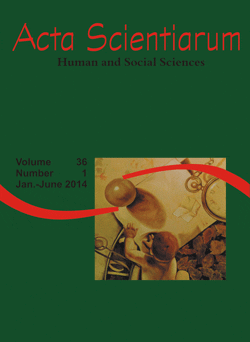<b>Poder e Verdade em Foucault e em Habermas
Resumo
Este trabalho visa analisar como a questão da verdade se imbrica ao poder, nas teorias de Foucault e de Habermas, apontando proximidades e distanciamentos nestas duas perspectivas teóricas. Se por um lado, temos uma verdade em Foucault que se baseia numa imposição monológica, por outro, temos Habermas com um entendimento dialógico da verdade, em ambos os casos relacionados com o poder, ainda que em posições inversas, como o próprio Habermas ressalta em ‘O Discurso Filosófico da Modernidade’. Foucault parte de uma perspectiva capilar do poder, ao passo que, esta relação fica mais clara em Habermas na ideia de colonização do mundo da vida, que se aproxima da ideia de imposição de um discurso por outro, constituindo assim a verdade, como está presente em Foucault. Buscamos chamar a atenção para as implicações epistemológicas destas duas perspectivas, que por mais que distem, reafirmam a ligação visceral presente entre a produção (e imposição) da verdade e o poder em nossa sociedade.
Downloads
DECLARAÇÃO DE ORIGINALIDADE E DIREITOS AUTORAIS
Declaro que o presente artigo é original, não tendo sido submetido à publicação em qualquer outro periódico nacional ou internacional, quer seja em parte ou em sua totalidade.
Os direitos autorais pertencem exclusivamente aos autores. Os direitos de licenciamento utilizados pelo periódico é a licença Creative Commons Attribution 4.0 (CC BY 4.0): são permitidos o acompartilhamento (cópia e distribuição do material em qualqer meio ou formato) e adaptação (remix, transformação e criação de material a partir do conteúdo assim licenciado para quaisquer fins, inclusive comerciais.
Recomenda-se a leitura desse link para maiores informações sobre o tema: fornecimento de créditos e referências de forma correta, entre outros detalhes cruciais para uso adequado do material licenciado.


























